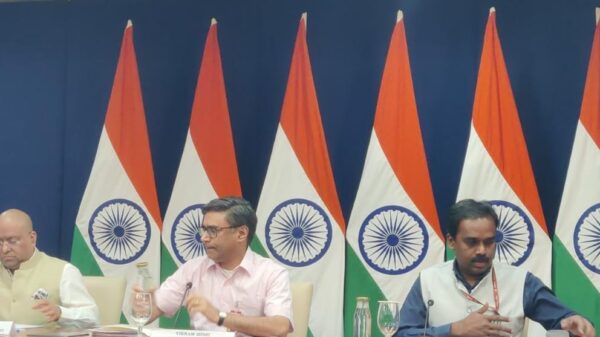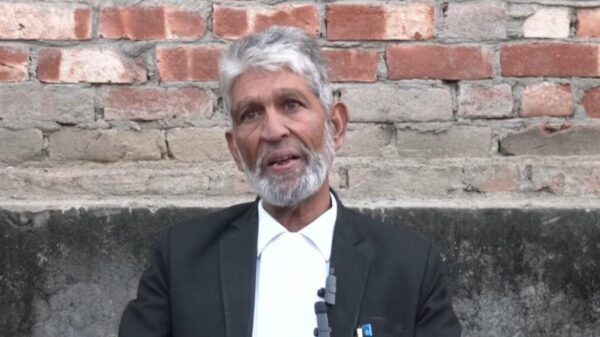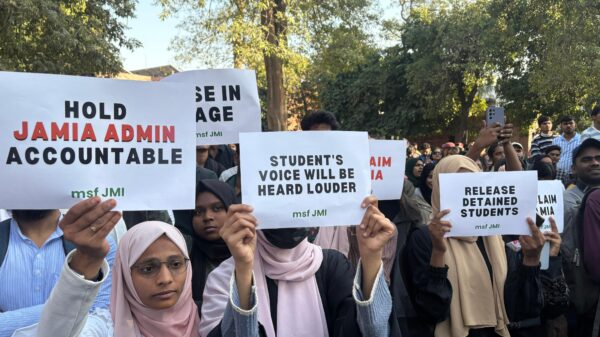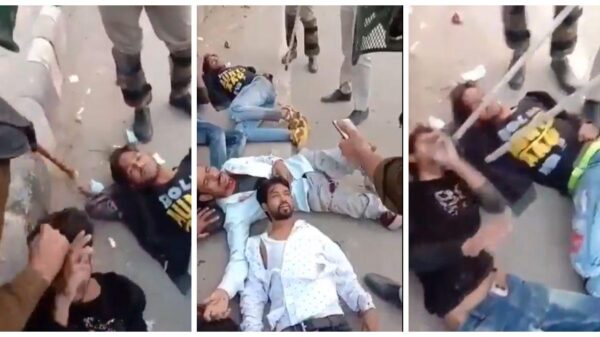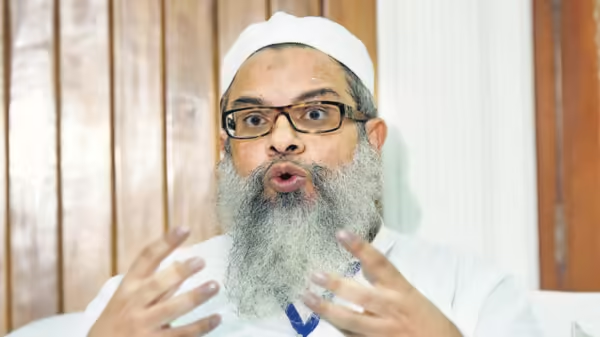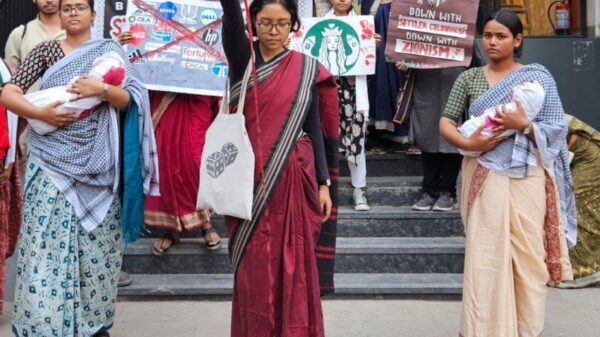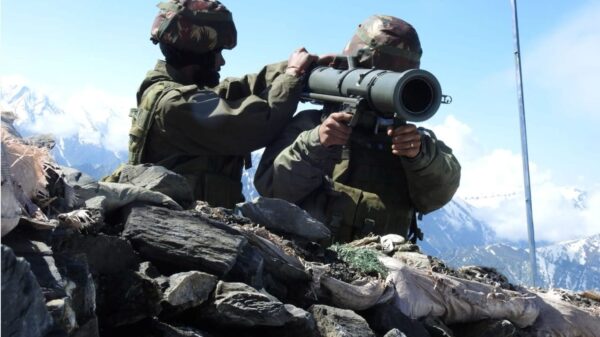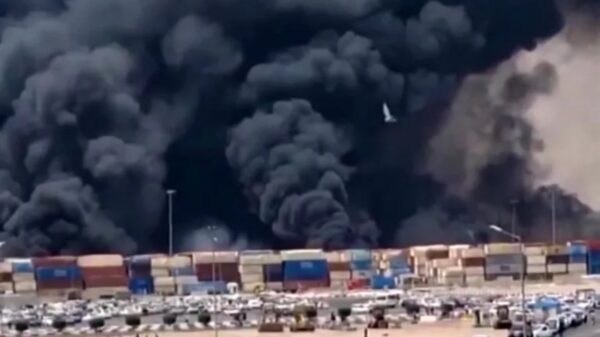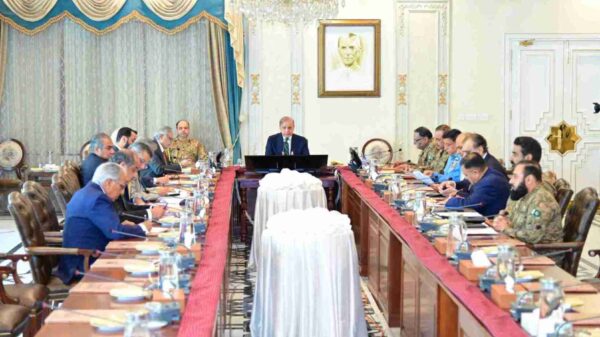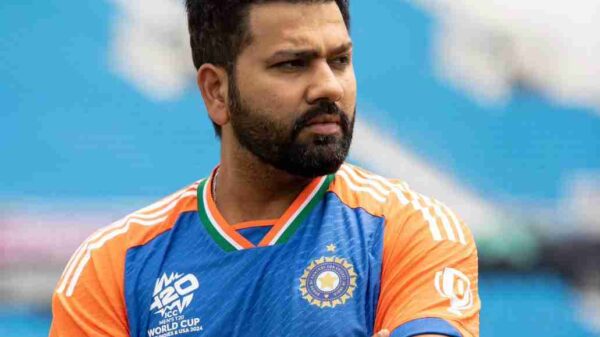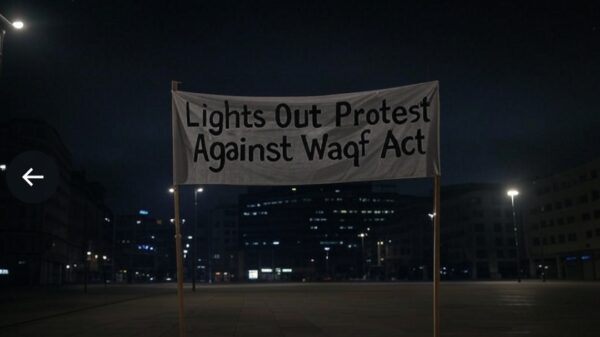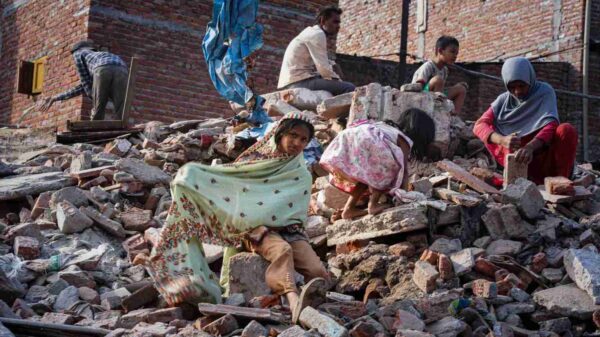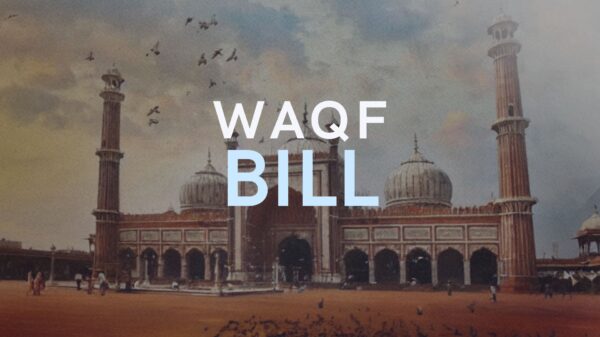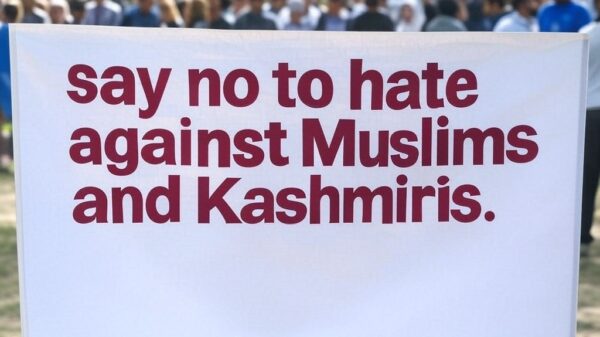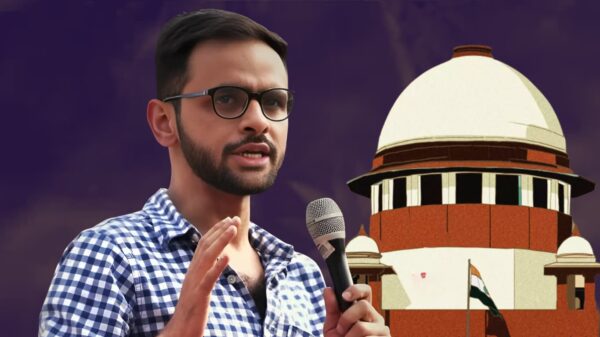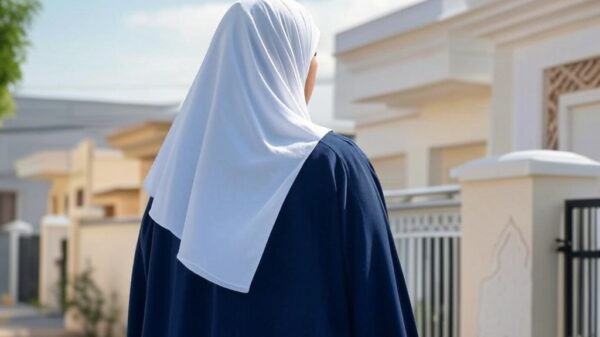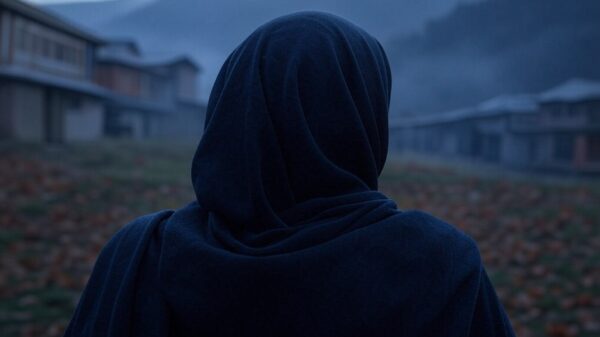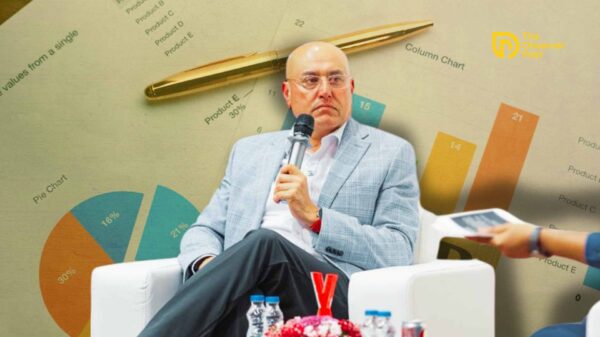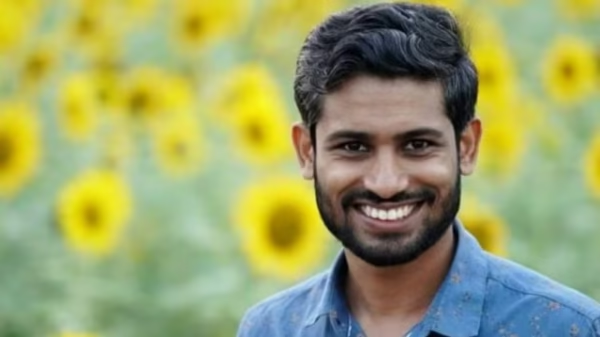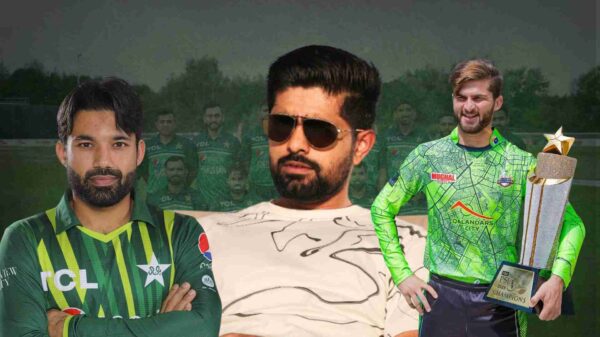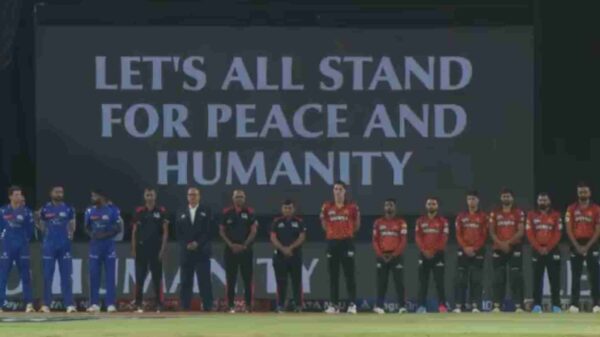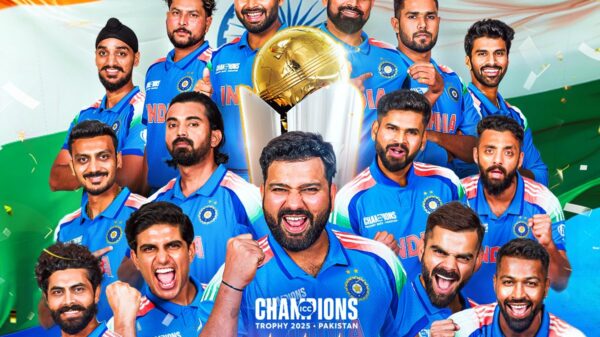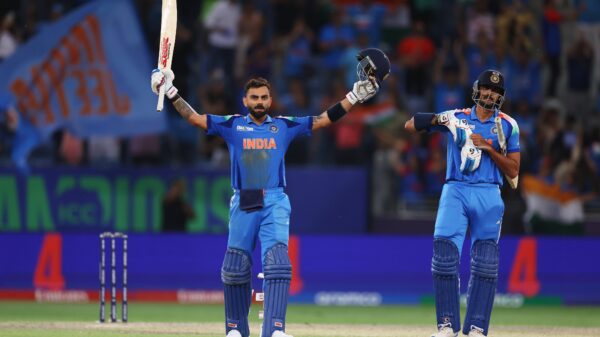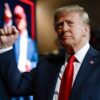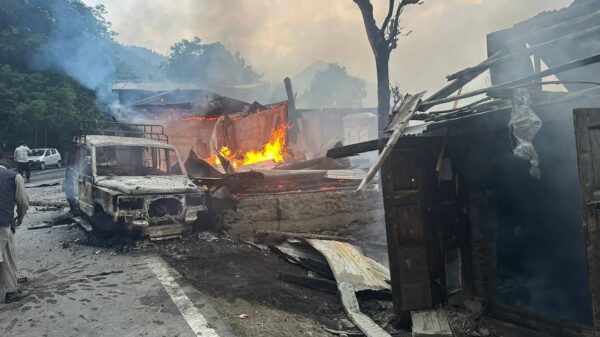HAJARA NAJEEB
On 14 April, Prime Minister Modi inaugurated the Maharaja Agrasen airport in Hisar, Haryana. Following the inauguration, he addressed the crowd, flaunting the “pro-development” stance of the NDA government. The BJP had won the state with a clear majority of 48 out of 90 seats in the assembly elections held in October last year.
During his speech, Modi talked about the Waqf (Amendment) Act, 2025, which came into force a week before this statement, on 8 April.
In the speech, the Prime Minister mentioned the number of properties held by the waqf. “This land and property should have been used for the welfare of helpless women and children. Had it been used the right way, the young Muslims would not have to repair punctures for a living,” he said, ensnaring the logic of grabbing waqf land under the guise of muslim welfare.
The Prime Minister belittled the entire muslim population by referring to them through a term colloquially used to denote a lower social rung to dominate them. But he puts the onus of it on the community itself too, excusing the state governed by him and many before him from the blame of the socio-economic disparity of the muslim community and the dispossession that has continued despite the constitutional rights guaranteed equally to every citizen of the country.
The reactions to this were diverse – politicians like Owaisi called out the comment by taking a dig at Modi’s chaiwala persona, tweeting that “if the thinking and property of the sangh parivar was used in the interest of the country, Modi would not have to sell tea”.
Many muslims took to X, posting pictures from their workplaces with the snark “nothing, just repairing punctures”. Along with this, the upper-caste-class elites also mourned the failure of society on their social media handles for the insults invoked by the comments like “puncture wallah”. If the former was an act of defiance in the face of subhumanization, the latter reeked of blissful ignorance with a wrapping of benevolent classism.
Modi’s statement on the amendment served the agenda of Hindutva politics – snatching the right of Muslims to establish and maintain institutions for religious and charitable purposes and manage their affairs as spelt out in Article 26 (freedom to manage religious affairs) of the Indian Constitution.
The BJP has justified the amendment under the garb of providing representation to Pasmanda Muslims and women in the Waqf governing bodies. These bodies, as per the public statements of the BJP leaders, are drowning in corruption and malpractice, making it necessary for the external body to interfere. Hence, the BJP government should ultimately step in to provide justice to Muslims, which has been snatched away by the Muslims.
Under the Waqf (Amendment) Act, 2025, the undisputed authority to determine Waqf properties rests with the collector. The collector also wields power to declare properties as not Waqf by labelling them as “government properties”, and the Waqf board will be barred from claiming ownership, as the authority to resolve disputes is completely vested with the collector, who will submit a report to the government.
This absolute hegemony over the community assets is a legal bulldozer, one that flattens the very purpose of the institution of Waqf, which exists to protect the assets given for religious and charitable purposes.
While the previous law mandated all members of the Waqf board to be muslims, the amendment has removed it by stating that experts, including judges, parliamentarians and other people need not be muslims, ensuring a free pass for state appropriation.
Another important change is the removal of the ‘Waqf by User’ provision, which mandated that properties which have been used for religious purposes for a very long time could be declared as Waqf property without formal documentation. This would erase legal recognition for mosques, madrasas, dargahs, and graveyards that have served the community for generations but lack formal documentation.
These were not the talking points during Modi’s 14 April speech. In the face of such a legalised tool for encroachment, muslims had to bear the taunt of social deprivation as the onus, ironically, fell on themselves.
My point, however, is also beneath all this. Why is the Prime Minister concerned about the largest minority of his country only when he has to criticise the opposition? If his developmental projects were welcomed by the people so much so that they gave him a third tenure, why does he have to resort to divisive politics to gain attention? Why is the opposition, the harbingers of secular and harmonious politics, maintaining a deafening silence when Muslim lands are being snatched away? Why are they not critical when muslims are being called puncture-wallahs, invaders and mafias? Are they going to stop blaming the BJP and start looking within, as they themselves reduced the number of Muslim candidates contesting for Lok Sabha elections from 34 in 2019 to 19 in 2024?
The Prime Minister And The Many Muslim Names
Modi’s habit of using hateful names for Muslims is not new, visible through securing the second position among the politicians who delivered the most hate speeches last year, according to the report by the India Hate Lab. The terms like ‘puncture wallahs’, ‘ghuspetiyas’, ‘love jihad’, etc., which make up the lexicon of Hindu supremacists, have been uttered, screamed and legitimised by the Prime Minister.
First comes the existence of Muslims in itself – During 2002, in a rally associated with the Gaurav Yatra, Narendra Modi remarked that the Gujarat violence relief camps were “child-producing factories”. At the same event, he said that the baby planning of Muslims is like “hum paanch hamare pachees”. He again kindled the “population rise” recently during the rally in Banswara, Rajasthan, where he said that the Congress will transfer the properties of the Hindus to people with “more children”.
For Modi, Muslim children are not children; rather, they are “kutte ka pilla”, as he said in another interview with Reuters in 2013. When asked about the people killed in Gujarat in 2002, he responded, “Even if I am in the backseat of a car and a puppy (kutte ka bachcha) comes under the wheels, isn’t it painful? It is. Whether I am a chief minister or not, I am a human being — I will be sad if something bad happens anywhere.”
Then he gets into the political and cultural existence of the community – building homes has become land jihad, appealing for minority votes is vote jihad, and inter-religious love is love jihad.
In 2012, while he was the then Gujarat chief minister, Modi criticised the UPA government for subsidising meat exports by saying that they want a “pink revolution”. He made this remark while inaugurating the annual general meeting of the Jain International Trade Organisation (JITO). Ironically, two years later, he admitted in an interview with ABP News how his Jain friends are in the meat export business.
Again in 2024, in the garb of attacking the congress, he stated that the congress has been running vote jihad. This was delivered in an election rally in Madhya Pradesh’s Khargone, which had seen communal violence during the Ram Navami procession in April 2022, which resulted in the demolition of muslim homes.
“The Puncture Wallah”
Even though it has been popular among right-wing social media accounts, this is not the first time the term ‘puncture wallah’ has been used by a politician. During a rally, BJP Member of Parliament from Bangalore South, Tejasvi Surya, has used the term to denote the Anti-CAA NRC protestors in 2019, saying that “only puncture-wallahs are opposing this law” (CAA-NRC).
Modi himself, during the same Gaurav Yatra speech in September 2002, had remarked, “The population is rising in Gujarat, money isn’t reaching the poor? What’s the reason? They make a beeline, fix cycle punctures”.
Hence, the fixation with puncture-fixing muslims is not new. However, has the NDA government done anything substantial in their last two terms to “uplift” the Muslims they seem to be so “concerned” about?
The Muslim community saw the greatest decline in the share of regular employees, falling from 22.1 in 2018-19 to 15.3 percent in 2022-23, thus having the highest share of casual labourers according to the Periodic Labour Force Survey (PLFS). The enrolment of muslims in higher education institutions also decreased from 5.5% in 2020 to 4.87% in 2021, according to the report by All India Survey on Higher Education (AISHE).
When it comes to the political front, the ruling party doesn’t have a single muslim representative in the Lok Sabha. In his speech, Modi asks, “Why can’t the Congress make a Muslim the President of the party or give half of the election tickets to them so that they can win and propose their demands?”. While there is no accountability in this regard for the BJP, as highlighted above, the opposition has also excused itself from fielding more muslims after garnering muslim votes.
Divisive Politics and the Mobilisation For Dispossession
Therefore, it is clear – divisive policies have been the best arrow in the BJP’s quiver. They have been effectively aiming it at crucial moments – Prime Minister’s Banswara speech during Lok Sabha election where the Prime Minister warned that the Mangal Sutra would be snatched by the opposition and given to people with more children, Jharkhand BJP cell’s election advertisement where skull-cap wearing Muslims were shown to be trespassing and intruding Hindu homes, the current Delhi deputy Chief Minister Parvesh Verma saying that the protestors of Shaheen Bagh “will enter your homes, they will pick up your sisters and daughters and rape and kill them.” during the anti-CAA NRC protests, then Uttar Pradesh state minister Swami Prasad Maurya calling Muslim men “lustful” during the proceedings of Triple Talaq Bill in April 2017, T Raja Singh accusing burqa-wearing Muslim women as conspirators of ‘love-jihad’ during the controversial Hijab ban in Karnataka are but a few examples.
Hence, such name-calling has always emerged when key issues concerning the muslim community were discussed.
In the Hisar speech too, the Prime Minister stated that through Waqf, the land of Adivasis, Dalits and backwards sections was encroached. However, he jumped the subject of how the state has manufactured consent for encroaching tribal lands across central India while serving the interests of the extractive industry. Of late, the systemic encroachments have also been driven by the narrative of positioning muslims as “infiltrators” in states like Jharkhand, which reveals the intent of the state policy and the systemic land encroachment under the guise of “reform” for muslims and “development” for Adivasis and Dalits.
Since Modi’s Hisar speech was on the occasion of Ambedkar Jayanti, he also reminded the audience that such a law (Waqf) was against the principles of Babasaheb Ambedkar and his vision of the constitution. This was an attempt to isolate and criminalise muslims from other marginalised sectors by labelling them as the perpetrators of the country’s backwardness. This exists when Muslim homes, shops and structures are being razed down by bulldozers, without prior notice and manufactured reasons. However, when the question of Muslim land rights and property ownership is tabled, they become land snatchers and invaders ought to be disciplined by the state.
Hajara Najeeb is a Researcher based in Delhi.
The views expressed in this article are author’s own and do not necessarily reflect the policy of the platform.

